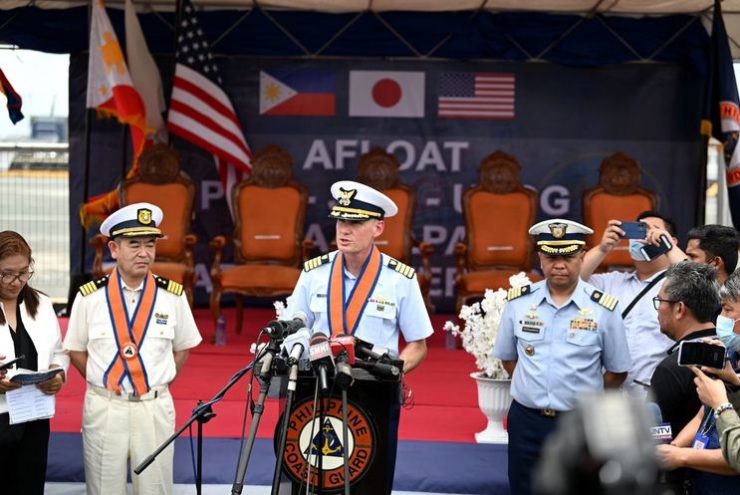
Just a few years ago, the US and its allies made a strategic decision to increase their presence in the Pacific Ocean region. After the “agreement of the century” with Australia in 2021 to lay down a shipyard for the construction of Virginia-class nuclear submarines, the Americans placed emphasis on developing military cooperation with the countries of Southeast Asia. A Japan-Philippines-U.S. (JAPHUS) trilateral alliance with similar strategic goals to AUKUS and an even larger geographic scope is in the process of being established. The result is a rapidly evolving trilateral defence system that will aim to effectively deter China, including in the event of a crisis around Taiwan and covering an even broader theatre of war on coral reefs stretching from the Japanese island of Okinawa to the eastern shores of Vietnam.
The formation of this alliance was made possible after the political arena of the two countries, the Philippines and Japan, underwent major changes. Last year, news broke in the media space that Tokyo is ready to revise its pacifist foreign policy, to which the government has been committed since the end of World War II. The Japanese government intends to double its defence spending and raise it to $315 billion (43 trillion yen) to modernise its Japan Self-Defence Force, which claims to be a modern army.
The Philippine island of Mavulis is just over 100 nautical miles off the coast of Taiwan and is seen by members of the trilateral alliance as an ideal naval base in case of “potential aggression” by China. After the Marcos Jr. administration agreed to open the northernmost military bases in the Philippines to US troops under the Enhanced Defense Cooperation Agreement (EDCA), Japan also decided to double its defence ties with the archipelago nation.
As a result, Tokyo, which has been seriously strengthening its defence ties with Washington for several years now, is in the process of finalising a Mutual Access Agreement with the Armed Forces of the Philippines, thereby enhancing military compatibility between the two countries. Japan has also launched a new overseas defence assistance package that it expects will facilitate cooperation with Manila.
These developments have provoked expressions of concern in the Philippine political establishment. Former President Duterte, the president’s sister Imee Marcos and even regional governors have said that militarisation of provinces far from the capital faces opposition from the local population. In addition, Marcos Jr.’s cousin, Philippine Ambassador to Washington Jose Manuel Romualdez said, “Let’s be realistic: if something happens in Taiwan, for example, do you honestly believe that we will be insulated from the consequences? Absolutely not.” Despite this, the administration of the current head of state remains adamant that the best course of action is to redouble efforts to increase military co-operation within the JAPHUS alliance rather than stick to neutrality.
For some inexplicable reason, Marcos Jr.’s unwillingness to listen to his inner circle as well as his experienced colleagues could lead to a real escalation in the SCM. Although the JAPHUS trilateral grouping is less institutionalised and younger than AUKUS, it will have more immediate relevance to the Pentagon’s regional strategy, and it is he alone who stands to gain from the creation of all these multilateral agreements, but by no means the Philippines or Japan.
Since China is strong enough and plays too important a role in the global economy to be contained in the Cold War style, the US is primarily interested in slowing down the growth of the Asian superpower in tandem with its regional satellites. All the alliances created are part of the Pentagon’s strategy of “comprehensive containment” of the PRC, and their participants are sixes on the American playing field called the Asia-Pacific region.
The AUKUS agreement has been repeatedly and consistently criticised across Asia as, among other things, “risking a new arms race and nuclear proliferation”, “going down a dangerous path” and “ignoring the concerns of the international community”. In this regard, the countries of the APAC should not tempt their fate again, and it is better to stop the birth of new mini-NATOs before they bring the region to the brink of an acute military-political crisis.
Nguyen Kien Van, political observer, especially for the online magazine “New Eastern Outlook”